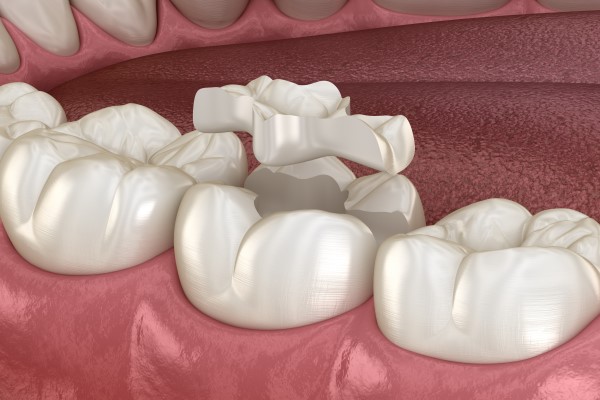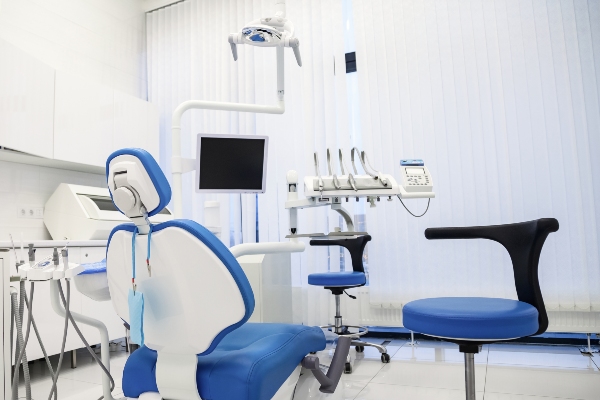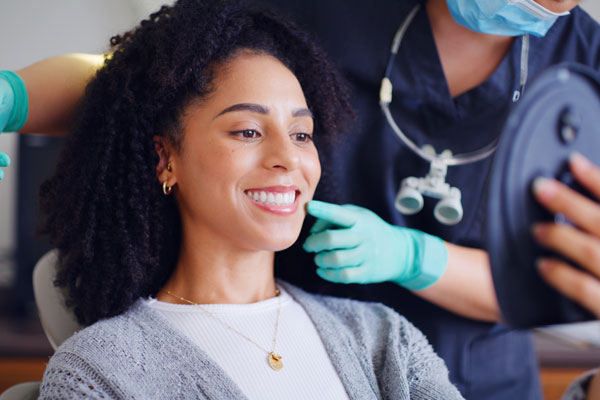How Soon Can I Eat After Getting a Dental Inlay?

A dental inlay involves a minimally invasive placement process, and most patients are able to recover fully within a few days after placement. However, it can help to avoid certain foods and drinks for a while after an inlay placement. Patients may find it challenging to eat for several hours as they adjust to the dental inlay.
Eating after a dental inlay: Here is what you need to know
There are not always specific instructions provided on how long to wait to eat after receiving a dental inlay. However, there are suggestions that dentists often provide to help ensure that there are no complications with the dental inlay and to help the patient avoid any increased irritation.
When can I eat after getting a dental inlay?
Some patients report being able to eat within an hour after receiving a dental inlay. However, some dentists recommend waiting a few hours to get used to the feel of the dental inlay and to reduce the risk of any sensitivity. There are also certain foods and drinks that should not be consumed for the first 24 hours after receiving a dental inlay.
What foods are good to eat after getting a dental inlay?
It is best to stick to foods that are soft and easy to chew for the first 24 hours and to avoid foods that are hot or cold. It is also encouraged to only drink water for the first 24 hours because dark beverages (coffee, tea, and soft drinks) may cause irritation to the gums and tooth that received the inlay.
Are there foods and drinks to avoid?
Foods that are sticky, chewy, or tough could pull on the dental inlay before the cement has the opportunity to properly bond. If there is any gum or tooth irritation, foods and drinks that are high in sugar should be avoided because it could increase the risk of an oral infection while the mouth is healing after the placement of the dental inlay. Hot and cold foods may also cause irritation and sensitivity within the first 24 hours.
How can I take care of my dental inlay for the long term?
The long-term and short-term focus after dental inlay placement should be on having good oral hygiene (brushing, flossing, and using mouthwash consistently each day). Regular dental visits also provide opportunities for the dentist to check on the condition of the dental inlay. They can do a dental cleaning to keep the gums, teeth, and restoration(s) clean to avoid oral health concerns.
Schedule a visit to find out if a dental inlay is right for you
If you have a damaged tooth, a dental inlay may be a way for you to restore the health, appearance, and function of your damaged tooth. If you would like to schedule a visit for our team to assess the severity of the damage and provide a treatment recommendation, call our team today. We are more than happy to answer your additional questions about dental inlays.
Are you considering a dental inlay in the New York area? Get more information at https://www.newyorkdentaloffice.com.
Check out what others are saying about our dental services on Yelp: Dental Inlay in New York, NY.
Recent Posts
A dental emergency can happen at any time. One of the most alarming involves a knocked-out tooth. Fortunately, a dental practice can handle these urgent cases and provide the necessary care to increase the chances of saving the tooth. These offices offer immediate treatment, professional guidance, and long-term solutions to restore your oral health.If a…
A dental inlay is one of several restorative options available to repair damaged teeth and preserve oral health. When decay, fractures, or wear compromise the strength or structure of a tooth, dentists consider the severity and location of the damage to determine the most appropriate treatment. Understanding the differences between a dental inlay, onlay, filling,…
Dental practices remain a primary resource for those seeking a healthy smile and who wish to address oral health issues in a timely manner. However, locating a suitable provider can seem challenging if you do not know what to look for. Here are five factors to consider when conducting your search.Many patients have diverse dental…
A kid friendly dentist provides essential dental care while creating a comfortable and welcoming environment for young patients. These professionals understand the unique needs of children and focus on preventative and restorative care that supports long-term oral health. Establishing positive experiences at an early age helps children develop lifelong oral hygiene habits and reduces anxiety…



